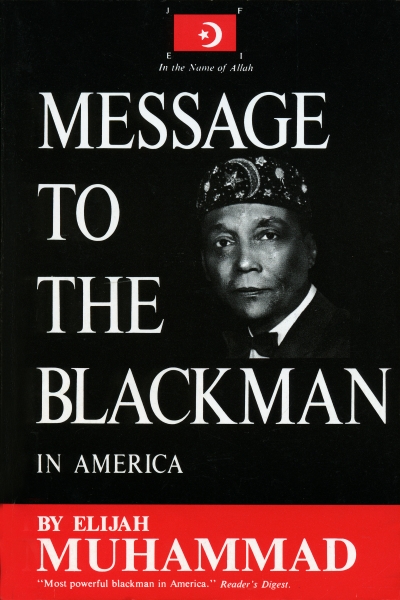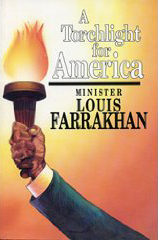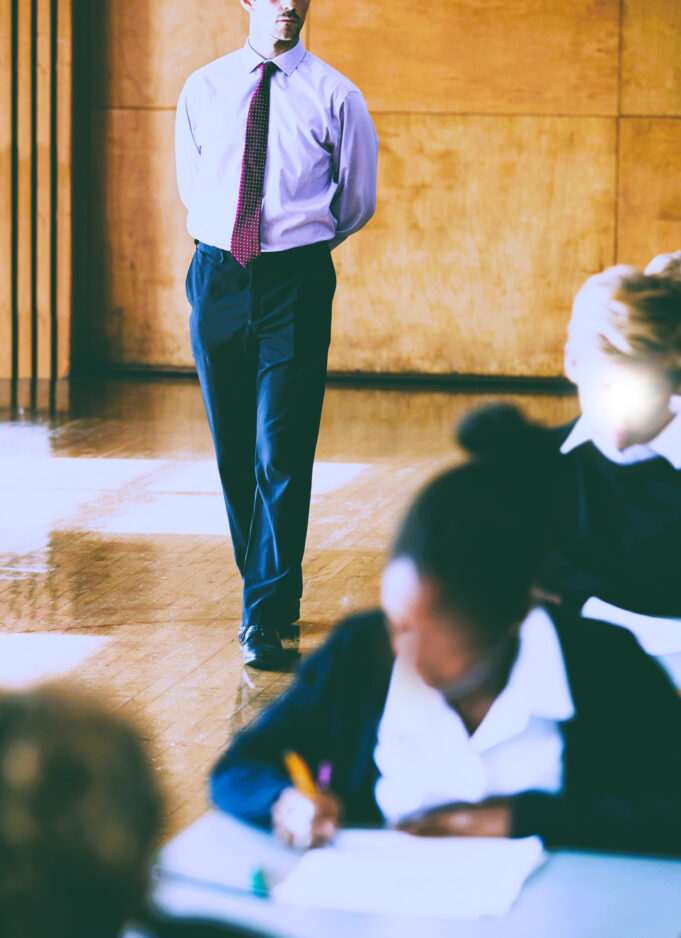From the prohibition of learning during the Trans-Atlantic Slave Trade to poorly funded, segregated schools to the current erasure of Black history in America’s school system today, Black people have never been allowed to learn in peace.
In just the first three months of the year, before, during and after Black History Month, Black students from different parts of the country experienced racism at the hands of White classmates. Meanwhile, Black history continues to be whitewashed and erased from K-12 curricula, with a growing list of banned books by Black authors.
If the Covid-19 pandemic was the rocket, then racism, erasure and their children falling behind was the fuel that propelled more Black parents to seek out alternative options to the traditional public school system, such as homeschooling, Black-led online schools and Black-led charter schools.
Anti-Blackness and hateful bigotry
In just the past few months alone, Black students in K-12 schools have been the target of anti-Black drawings, comments, messages and social media posts.

On late Jan. 18 and early Jan. 19, eight Black students at Harriton High School in the Lower Merion School District in Rosemont, Pennsylvania, received three, one-line email messages from a fellow student: the first one, “You stupid N****’s … need to be my slaves”; the second, “You can ask my girlfriend out, and I’m fine … as long as I keep dropping N word bomb”; and the third, “I will rule against race without intention.” The student, who created a fake Gmail account to send the emails, has since been removed from the school.
On Feb. 2, day two of Black History Month, White students at Pepper Tree Elementary in the Upland Unified School District in California drew racist cards for their Black classmates.
Black grandmother Earlie Douglas called attention to the incident with a Feb. 17 Facebook post accompanied by images of the cards. “These cards were passed out to the Black kids at my grandchildren’s school,” she wrote. “My grand daughter was told that they were making her one for her that says ‘you are my favorite slave’ and they were drawing a picture of a slave hanging from a tree.’”
One card is addressed: “to: my favorite cotton picker.” On the card’s inside is written, “HAPPY BLACK HISTORY MONTH. The group will be nice to you all month.” On the opposite page, a stick figure holds a sign saying there is no more cotton picking.
A second card depicts trees with an image indicative of a noose hanging between them. On the inside, above a drawing of a monkey are the words, “Your [sic] my favorite monkey.”
The school is in the Upland Unified School District just east of Los Angeles. Though representatives with the district apologized, denounced racism and expressed their hurt and regret, the mother of the student who received the drawings told KTLA, a local news outlet, that she had pulled her daughter from the school after continued harassment and little action from the district.
Soon after the incident, a group of parents filed a lawsuit against the district alleging years of racial harassment. They held a news conference on Feb. 27 demanding California’s attorney general to launch an investigation into the school and calling for a teacher and assistant principal at the school to be fired. The school district passed a resolution “denouncing racism and discrimination” on March 14.

A 15-year-old, Black honor roll student in South Carolina is suing her school district due to a November 2022 incident. Marissa Barnwell’s failure to acknowledge and recite the Pledge of Allegiance resulted in her being reportedly assaulted by a teacher.
The teenager was then sent to the principal’s office for further discipline. The lawsuit notes that she was the only student targeted out of several who were walking in the hallway and not reciting the pledge. There have been no consequences for the teacher, even after the teenager’s mother called the school in tears.
The litany of incidents go on and on and on: racist language and behavior at Saratoga Springs High School and Maple Avenue Middle School, both in Saratoga Springs, New York; incidences of racism at Eureka High School in Eureka, Missouri; TikTok videos posted by students at Carmel High School in Carmel, New York, making violent threats against Black people;
Students at a high school north of New York City posting deepfake videos on TikTok of a middle school principal and a member of law enforcement making racist remarks; threats of murder and rape of Black students and teachers in a Snapchat group with students from Mahopac Central School District in New York; a social media post of students from Valencia High School in Santa Clarita, California, repeatedly saying the N-word while smiling and laughing;
Incidences of blackface at the Saint Hubert Catholic High School for Girls in Philadelphia, during Black History Month; a racist Instagram post during Black History Month by a student at John Night Middle School in Dixon, California; and eighth graders from West Sylvan Middle School in Beaverton, Oregon, tying a Black classmate’s hands behind his back, forcing him to face down on a hallway floor and pushing a knee into his back.
“It’s the same strain of anti-Blackness and hateful bigotry. And we have to recognize that we have to create protections for our students where many of them are not safe, and they are being lynched culturally, emotionally, intellectually, spiritually in too many places that they are forced to attend,” said Sharif El-Mekki, founder and CEO of the Center for Black Educator Development, to The Final Call. “We have to make these spaces safe. And it’s not just about Black youth speaking differently, wearing different clothes, assimilating.
A lot of this has to really be on the focus of, who were their White classmates, who were the parents of those classmates, and most importantly, who’s leading those classrooms in schools and districts and who taught them, who prepared them to lead these classrooms in schools and districts? And who’s holding them accountable for making sure that Black youth are safe?” Mr. El-Mekki said.
“Because when we talk about the miseducation, it’s not just the miseducation of Black folks in these institutions. It’s also gross miseducation of White people as well,” he added.
Erasing Black history
Another concern of education advocates is the whitewashing and erasure of Black history in America’s schools. In 2022, at least six states—Florida, Georgia, Mississippi, Virginia, Kentucky and South Dakota—passed laws limiting curriculum and lessons related to race and racism, calling such concepts “divisive.” Many of the bills forbid teachers in K-12 schools from teaching that the United States of America is fundamentally racist and/or that any sex, race, ethnicity, religion or national origin is inherently superior or inferior.
Florida’s HB 7 (2022), or “Stop W.O.K.E.” (Stop Wrongs Against Our Kids and Employees) Act, would revise requirements for instruction on Black history and prohibit public university employees from requiring race-related and diversity training. The bill has been blocked by a federal judge.
Eleven other states passed laws in 2021 that restrict, in some way, curriculum and lessons related to race and racism in public schools. Those include Idaho, Iowa, New Hampshire, North Dakota, Oklahoma, South Carolina, Alabama, Montana, Tennessee, Utah and Texas. Teachers in Texas cannot be mandated to teach about slavery and racism as being “anything other than deviations from, betrayals of, or failures to live up to, the authentic founding principles of the United States, which include liberty and equality.”

Arkansas passed laws in January and March prohibiting teachers from saying that any identity group is “inherently superior or inferior” to another and requiring the state’s education department to get rid of anything promoting “indoctrination.”
From 2021 to 2023, at least 26 other states have introduced bills that would have limited the teaching of race and racism.
According to a study by Axios, teachers are scrapping once-noncontroversial Black history lessons for fear of being fired or shamed on social media. About 41 percent of Black teachers in states with limitations say they have changed lessons, opposed to 28 percent of White teachers in those same states, according to the report, published in February.
Mr. El-Mekki noted that White children often get “mirrors,” where they see reflections of themselves in curricula, while Black students get “windows,” where they look out and constantly see what White people say is classic, what White people say is genius and the contributions of Europeans and White Americans.
“If someone can talk about the history of America without including the genocidal, maniacal behavior of its founders, then we know that they’re being miseducated to such a degree that they become violent in their reactions if you point the truth to them,” he said. “And so this is why we have to constantly be very careful about who’s teaching our children and what, and that we are having introspection and inspecting what’s being taught, because much of it needs to be supplemented, or even supplanted. Too many Black youth are being taught in a way that their communities, their people, their ancestors did not contribute to civilization and then at best, that they’re stowaways to America’s or White people’s contributions, when in fact it’s the exact opposite.”
Many of the laws have been accompanied by a list of banned Black books and authors. According to a report by PEN America, 1,648 unique book titles were banned from July 2021 to June 2022. “Bans occurred in 138 school districts in 32 states. These districts represent 5,049 schools with a combined enrollment of nearly 4 million students,” the report says.

More Black parents are seeking out alternative options to the traditional public school system, such as homeschooling, Black-led online schools and Black-led charter schools.
Among the documented banned books, 40 percent contain protagonists or prominent secondary characters of color; 21 percent directly address issues of race and racism; 10 percent have themes related to rights and activism; 9 percent are either biography, autobiography, or memoir; and 4 percent include characters and stories that reflect religious minorities, such as Jewish, Muslim and other faith traditions.
PEN America estimated that at least 40 percent of bans listed in their index are connected to proposed or enacted legislation or political pressure to restrict the teaching of certain concepts. Black authors that have been banned the most include Toni Morrison, George M. Johnson, Angie Thomas, Jason Reynolds, Jacqueline Woodson, Nic Stone and Ibram X. Kendi.
Texas, Florida, Pennsylvania and Tennessee top the list of banned books, with 801 in Texas, 566 in Florida, 457 in Pennsylvania and 349 in Tennessee. Martin Luther King Jr.’s “I Have a Dream” speech and his “Letter from a Birmingham Jail” are among the list of dropped texts in Texas.
“There is an agenda, obviously, that has always taken place to promote whatever the American culture finds appropriate and important at that time, and our history is at the bottom of the totem pole,” said Wakiti Muhammad, owner and co-founder of the Houston-based The Elevated Places School. “Because of course, knowing about who we are gives us a level of empowerment, and we cannot be empowered. That’s what the enemy fears, is Black empowerment. The enemy fears the rise of Black people through a Black Messiah.”
Why the erasure?
Educators and advocates say that there has always been an attack on Black history.
“It’s not only happening, it never stopped. Sometimes when we talk about it, it’s almost as if the truth was pervasive and now they’re changing it. No, we’ve been trying to change it away from the very White supremacist view that it was written in,” Mr. El-Mekki said.
Wakiti Muhammad went directly to the origin of the American school system. She explained that it was founded by people who had the thought to teach Black children for the purposes of slavery, factory work and assimilation.
“In order for us to truly find systems that will benefit us, we would have to have created our own,” she said. “The system was not created for us, and so it will be impossible for us to be successful. The way that it is taught, and this is in 2023, it has not truly evolved since its inception.”

She argued that Black history is “consistently whitewashed and downplayed or even just completely eradicated from the American system because the people who are in control of this system do not want us to know at all just how brutally we have been treated, and just how savage we have been treated.”
Sherrie Muhammad, founder and director of Asiatic Minds online school, explained to The Final Call that the reason why Black history is being erased is due to the intelligence of today’s Black youth. “They are so much more intelligent, and they put things together so much quicker. They’re not easily tricked. They’re not easily fooled. So in looking at that history, I believe they will be able to see exactly what the enemy did, then, and how they’re striving to reproduce it now,” she said.
Rise in alternative solutions
Black educators and advocates noted how the COVID-19 pandemic exposed the lack of quality education Black children were getting in their neighborhood public schools. According to census data, the number of Black households homeschooling their children jumped from 3.3 percent at the start of the pandemic in 2020 to 16.1 percent by the fall of that year. The increase was the largest of any racial group.
“First, a lot of parents saw what their students were not being taught. A lot of parents were very angry because they thought that their children were really learning, and then to see the reality and what their children really did not know. That was a wake-up call for a lot of parents,” Sherrie Muhammad said.
Wakiti Muhammad stated similar sentiments. “It was a huge wake-up call, because parents were able to see that their students had not had certain skills like they thought. They were able to notice that some of the gaps have been formed in their educational goals, that students weren’t reading on level. Students weren’t writing on level. They were learning a lot of other skills and bad habits that didn’t have anything to do with their education,” she said.
“I’ve even seen parents who are looking for an alternative to public schools not just because of the curriculum, but that there is an underlying suppressiveness that comes with Black students,” she added. “And if you want your child to be at the forefront of leading industries and at the forefront, in the vanguard, of being a leader, then a different type of education and a different type of learning has to take place; something that allows them to be more creative, something that allows them to be more critical in their thinking, something that would allow them to collaborate more and see mass with Black people doing phenomenal things.”
Even in the past, Mr. El-Mekki explained that there were plenty of Black families who enrolled their children in schools such as Sister Clara Muhammad School in Philadelphia.
“It wasn’t just Muslims or Pan-African families who attended these schools. There were plenty of Black families who just said, we need better options that are not going to be this dreaded constant assault on the psyche of a Black child, where they’re going to leave school with a diploma but no sense of purpose, no sense of community and a negative self-identity,” he said. “They wanted the opposite, and we see that now.”
But he also noted that there are not enough of those schools, and not every family is able to homeschool.
“That means we’re going to have to rely more and more on institutions being built in our community that are specifically being built for the development of the Black child, to protect their brain, to protect their psyche and ensure that they know who they are and where they come from so they can plot and chart a path for a better future for their people, for our people,” he said.
The divine solution
For Sherrie Muhammad, the erasure of Black history is an opportunity for Black people “to recognize that, first and foremost, we are responsible for our own children’s education.”
“And I’m not saying that every parent is able to homeschool because that’s just not a reality. But what I am saying is that we cannot rely on these institutions to give an ‘education’ to our children,” she said.
“We are absolutely taught that we need to separate,” said Sherrie Muhammad.
The solution proposed by the Honorable Elijah Muhammad, the Eternal Leader of the Nation of Islam, is equal education. He writes in Point No. 9 of “What the Muslims Want,” published in His book, “Message to the Blackman in America,” and on the inside back page of every Final Call newspaper: “We want equal education—but separate schools up to 16 for boys and 18 for girls on the condition that the girls be sent to women’s colleges and universities.
We want all Black children educated, taught and trained by their own teachers. Under such schooling system, we believe we will make a better nation of people. The United States government should provide, free, all necessary text books and equipment, schools and college buildings. The Muslim teachers shall be left free to teach and train their people in the way of righteousness, decency and self respect.”
The Honorable Elijah Muhammad and the early Muslims removed their children from the White public school system. He established an independent school system in the 1930s, Muhammad University of Islam which continues today under the leadership and direction of His top student and National Representative, the Honorable Minister Louis Farrakhan.
Minister Farrakhan teaches that true education is an education that develops and cultivates the human being. When you’re truly educated, you’re cultivated from within, the Minister explained. “Education is supposed to be the proper cultivation of the gifts and talents of the individual through the acquisition of knowledge.
Knowledge satisfies our natural thirst for gaining that which will make us one with our Maker,” the Minister wrote in his book, “A Torchlight for America.” True education cultivates the person’s mind, body and spirit by bringing them closer to fulfilling their purpose for being, which is to reflect Allah (God), he explained.













